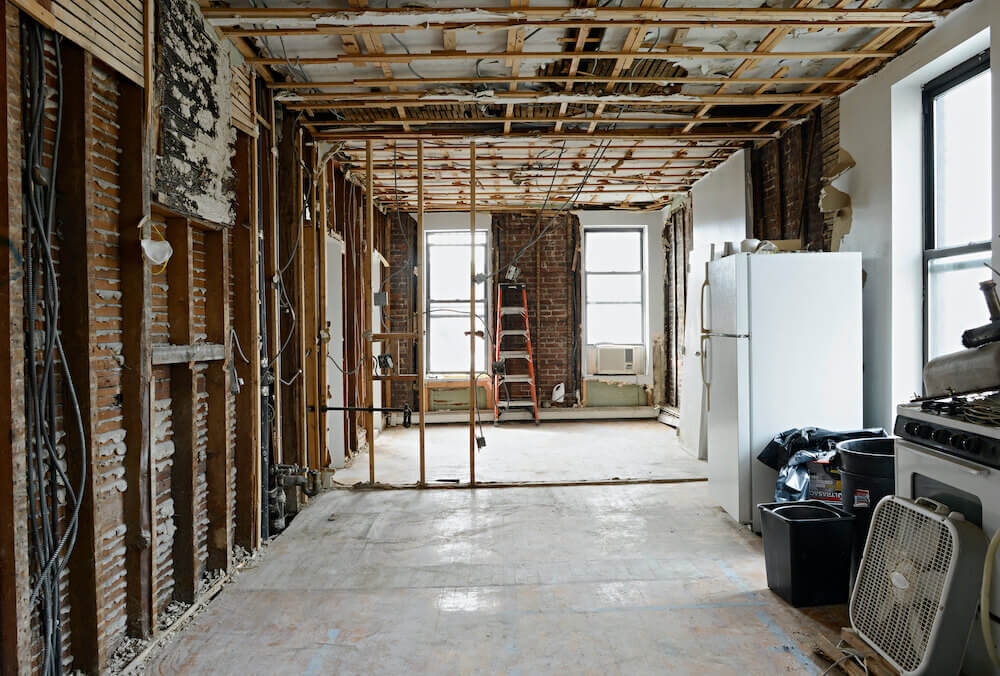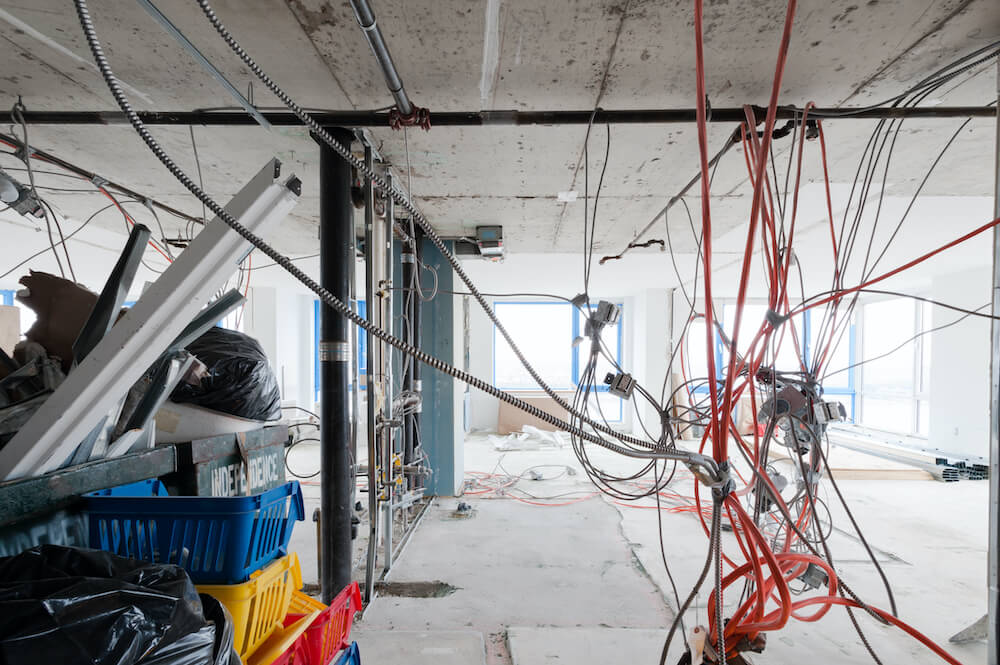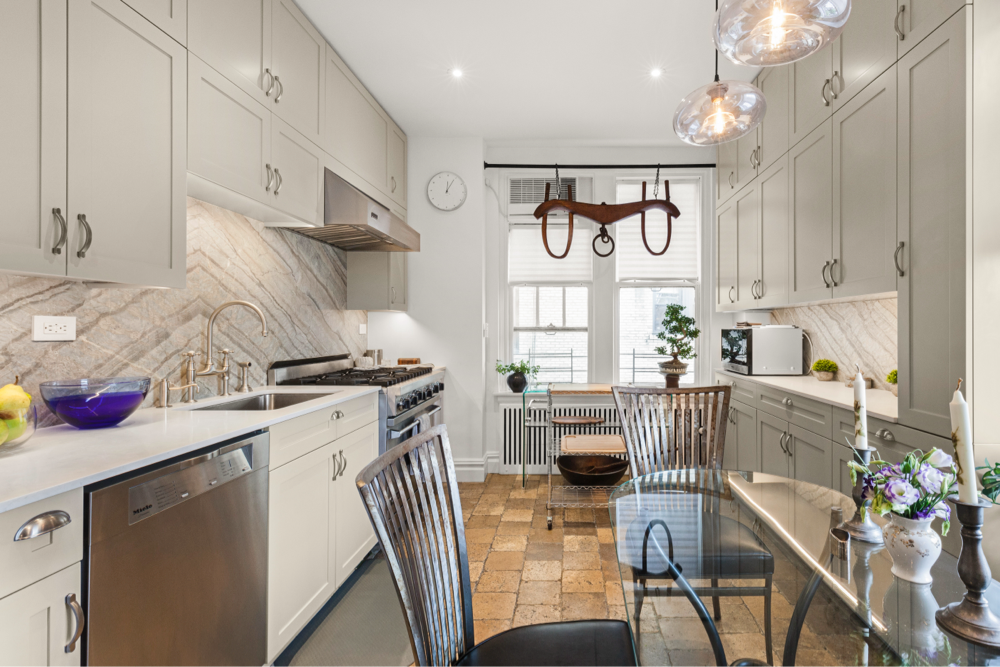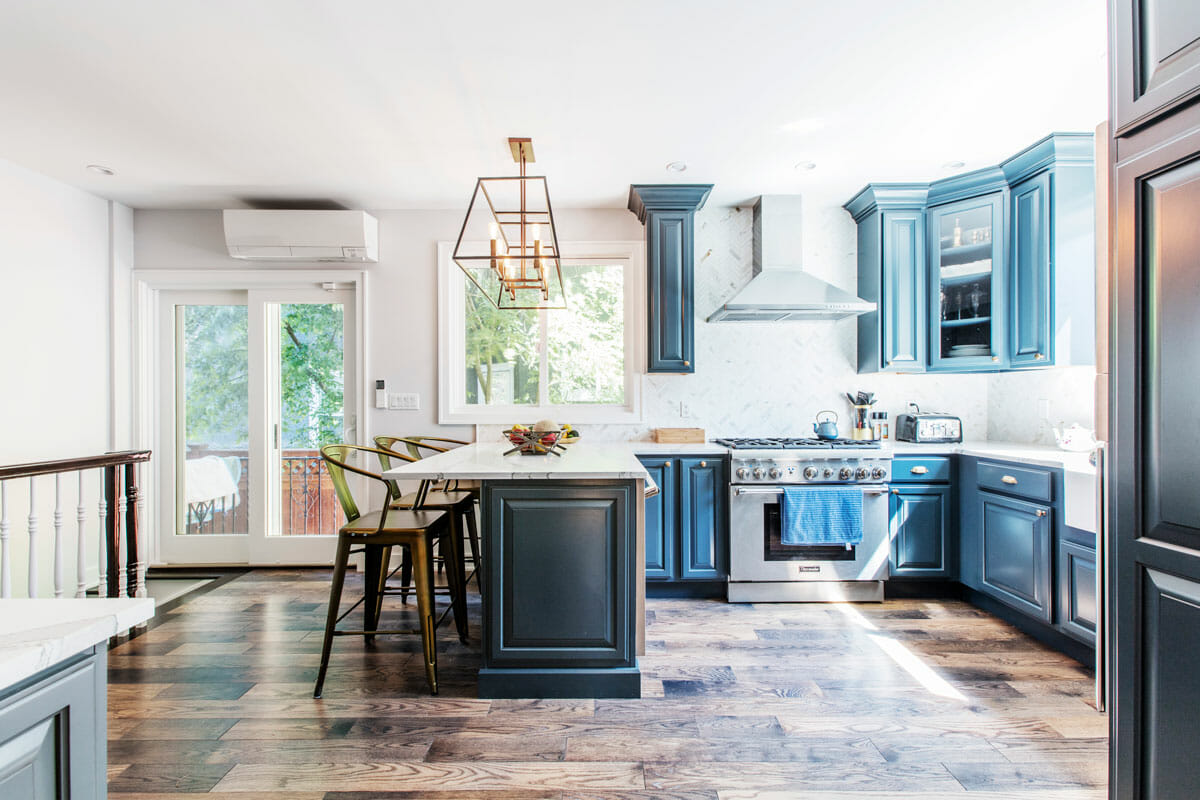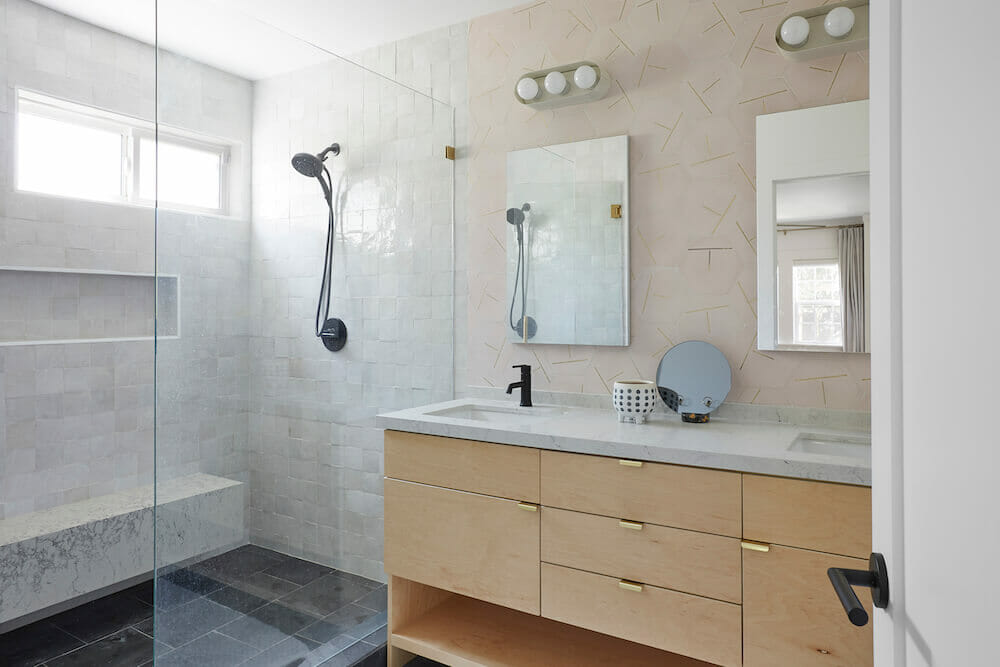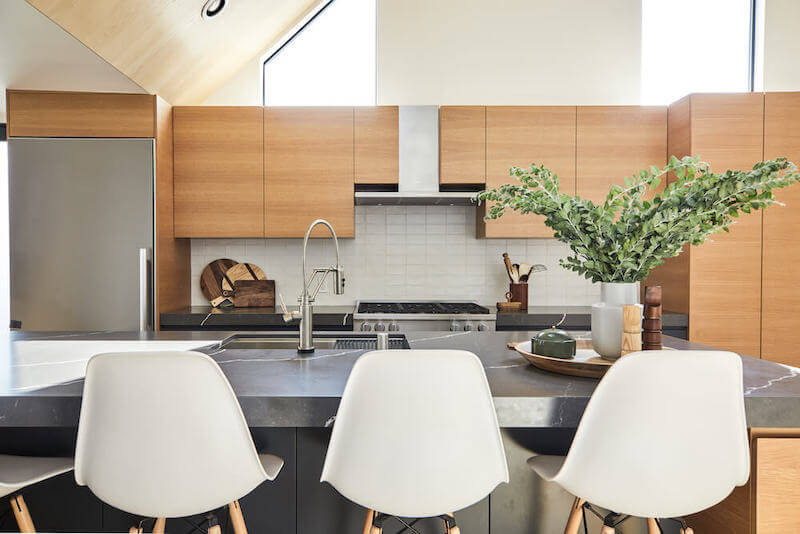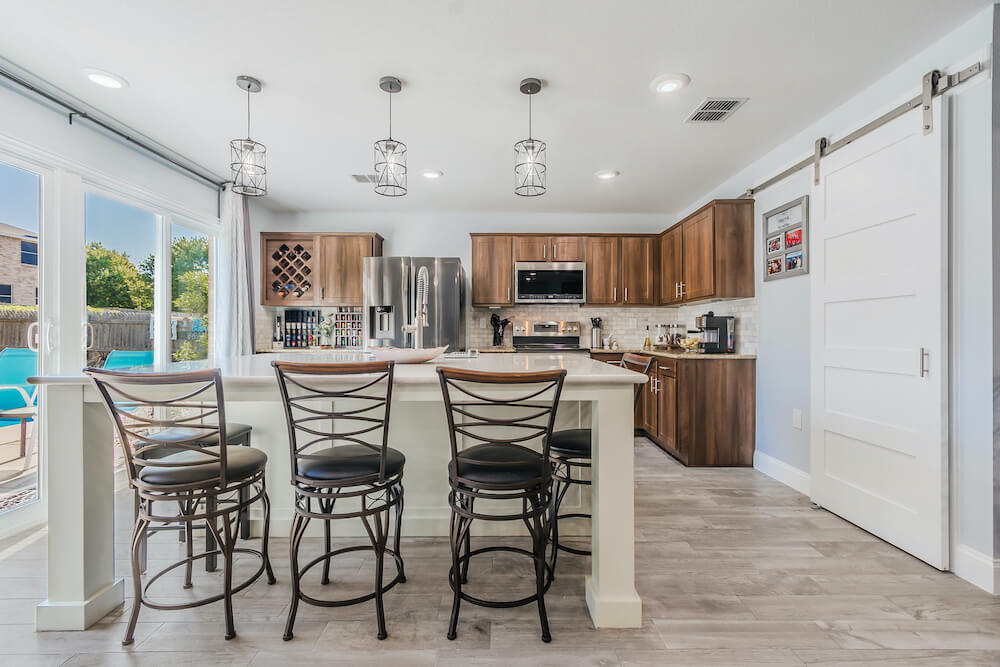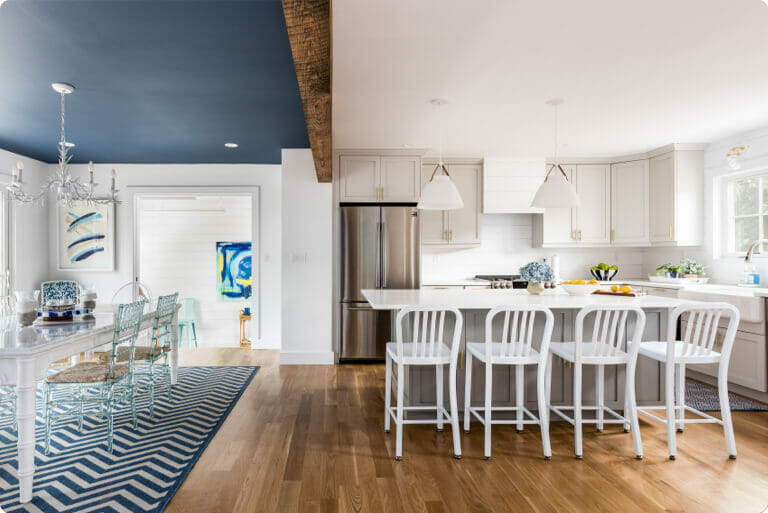Home / Blog / Home Renovation Process
Understanding Gut Renovations: Costs, Considerations, and Steps
From demolition and structural changes to new wiring, plumbing, and finishes, a gut renovation offers endless possibilities. However, it’s essential to understand the costs, complexities, and considerations involved in this ambitious project. In this guide, we’ll delve into the details of gutting a home, helping you make informed decisions and achieve your dream space.
Demolition, amount of work, a home’s condition, and alternate living arrangements all affect gut home renovation costs
A different level of owner commitment comes with a gut home renovation than a smaller renovation project. Here, Sweeten provides some guidance on points to consider when planning a major project like this.
At Sweeten, we’re experts at all things general contractors. Here’s how Sweeten works: We pre-screen them for our network, carefully select the best ones for your remodeling project, and work closely with hundreds of general contractors every day.
What’s involved in a gut home renovation?
First, let’s define the term. Gutting a home is more than an extensive remodel. It’s taking the walls down to the studs, removing existing interior doors and trim, cabinets, sinks, and exposing the structure of the home. It often includes replacing windows and exterior doors, the roof, and replacing most or all plumbing and electrical. Gutting is about the material removal before you remodel.
A renovation budget overview
Costs of materials
You’ll find Sweeten’s renovation cost guides here but keep in mind material costs and timelines have shifted. Prices for materials and labor have jumped, drastically in some cases and in some locales. It’s a good idea to add 20% to the materials budget and talk with your contractor about timing, materials, and budget.
Pro tip: Do not wait. Many sectors are experiencing a backlog in the supply of materials. For homeowners interested in renovating, it’s smart to schedule and sign with a contractor to lock in your material prices. You’ll also want to book a start date on the contractor’s schedule. If you do wait, prices may continue to go up and your material order will be at the back of a long queue.
“Must-haves” and “Nice-to-haves” lists
When making your project budget, it’s important to create a renovation list of “must-haves.” These are elements that are definitely required for the project, then make a second wishlist of “nice-to-haves.” This includes all of the changes you’d like to see but might be willing to forgo as you consider your budget.
A home’s existing condition
It’s also crucial to be realistic about the condition of your home, as the cost of a gut renovation can vary considerably by the condition of the structure. Updating the mechanical systems such as the electrical panel and old plumbing can range from straightforward in a dated foursquare house to challenging in a home located in an historic district. Sweeten brings homeowners an exceptional renovation experience by personally matching trusted general contractors to your project, while offering expert guidance and support—at no cost to you. Renovate expertly with Sweeten
Ask your contractor about worst-case scenarios given the building’s age and history. Consider the budget contingency that will give you peace of mind when your project kicks off. Your contractor can’t price out every possible surprise, but you should feel confident that you have a partner who will help you problem-solve when challenges come up.
Have a contingency plan
Homeowners undertaking serious gut remodels should build in an extra cash reserve for issues that come up along the way including issues that come up once the walls are broken into. Add more than 15% for a gut remodel.
Bathrooms contain the most plumbing and fixtures per square foot so tend to be the most expensive spaces in the house per square foot. Kitchens are next, then the other living spaces follow.
Should you leave or stay during a gut home renovation?
One of the most important considerations is deciding where you’ll live during the project. Nearly anything is possible, so you probably can remain in the house during the project. However, nearly any other plan is preferable for most people because you’ll almost certainly have to deal with surprises. You might discover a need for structural reinforcement, or unveil mold or asbestos, and decide then that you should reside elsewhere for a while. Also, if you do choose to stay during the project, you’ll need to make sure that you’re legally allowed to do so, too. Your city’s building department is the place to inquire.
Just remember that if you decide to stay in the home during the project to save money, you’ll still incur costs, and they could be substantial. Financial costs include delaying the project because you or your things are in the way. Non-financial costs could include a strain on daily family routines such as finding alternatives for when a kitchen or shower is being renovated. All those can result in financial costs, too.
Your contractor will guide you through the cost for permits and regulations associated with your project, such as placing dumpsters. If your home is in a homeowner’s association, they will also have requirements to meet.
Demolition before renovation
The demolition part of gutting a home is mostly labor and disposal costs, so it’s not really that expensive but removing plumbing pipes and drains and so on takes time. Outsourcing the demo or doing it as a DIY project doesn’t really save much money. For safety and hazard concerns, Sweeten recommends leaving demolition to the professionals.
Note that moving walls is not included in these costs. Moving load-bearing walls requires consulting with a structural engineer, and that could be $500—$1,000. Whenever you change walls around you’ll need to build temporary support walls, so there’s another cost to add in.
During demolition, you may discover hazards like asbestos, lead paint, and mold. If you do, a pro will evaluate how extensive the problem is. These hazards are not DIY-friendly. In some places, you’re not legally permitted to deal with these dangerous materials, especially asbestos which can only be handled by a professional.
The general contractor brings subcontractor connections
Finally, managing an extensive construction project like gutting a home is challenging and benefits from having an experienced general contractor. A general contractor usually has steady and long-standing connections to many subcontractors, so communication often goes smoothly. They will orchestrate and schedule between architects, engineers, plumbers, electricians, and other skilled labor.
When you’re ready to get started on your home remodel, work with Sweeten to renovate with the best contractors.
Architects specialize in bringing ideas to fruition, and they must communicate with homeowners at a high level. An architect must have a crystal-clear vision of how to transform the current home into the space you dream of. Getting the input of the architect as early in the process as possible will be invaluable in helping you mentally walk through the steps in advance. Sweeten design-build firms have in-house architectural services. Alternatively, Sweeten contractors can refer an architect if the project needs one.
Gutting a home is a major project. Having an understanding of the process with the guidance of the right general contractor and team sets you on a path for a smoother renovation. And a step closer to your dream home.
Ready to renovate? Start here for free!
Here you can learn more about our services and locations. Alternatively, browse more home renovation inspirations, processes, and cost guides.
FAQs
The cost of a gut renovation varies widely depending on factors such as the size of the house, the extent of the renovation, the location, and the materials used. On average, you can expect to spend anywhere from $50,000 to $250,000 or more.
When planning a gut renovation, several key factors need careful consideration. Firstly, establishing a realistic budget is essential, accounting for unexpected costs. Secondly, setting a realistic timeline helps manage expectations and avoid delays. Thirdly, obtaining necessary permits and ensuring compliance with local building codes is crucial. Selecting a reputable contractor with experience in gut renovations is also vital. Lastly, creating a detailed design plan, considering factors such as layout, materials, and finishes, is essential to achieve your desired outcome. If necessary, planning for temporary living arrangements can help minimize inconvenience during the renovation process.
